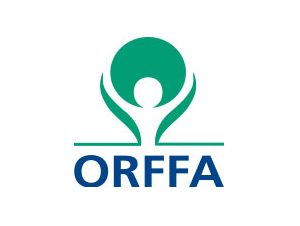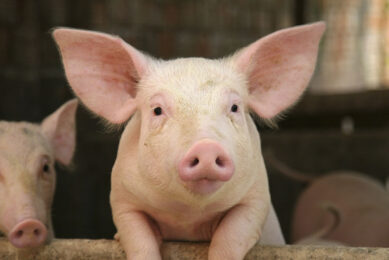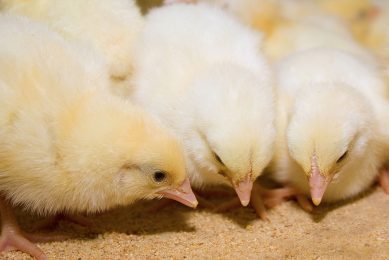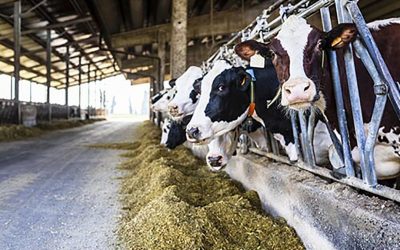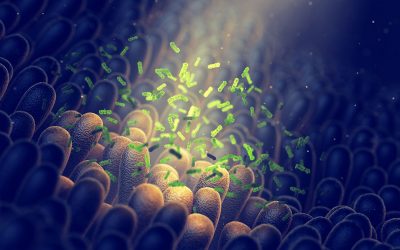Benefits of betaine in laying hen diets
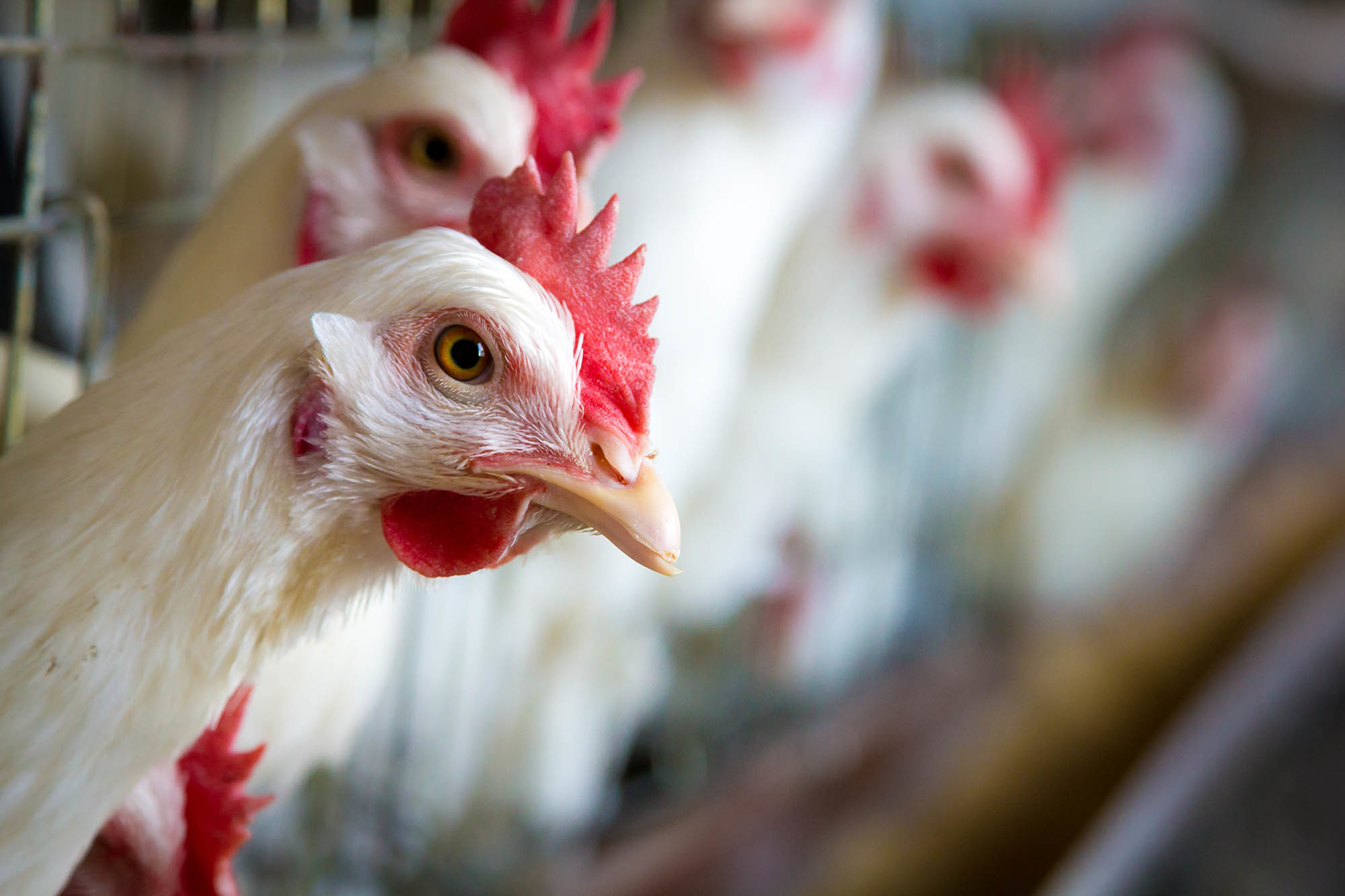
Betaine is commonly used in broiler, sow and aquaculture diets. The application of betaine in laying hen diets, however, is of increasing interest due to its cost effectiveness and the fact that it provides solutions for problems (e.g. fatty livers, wet litters and heat stress) which todays laying industry is facing.
In broiler nutrition, typically choline and methionine are replaced with betaine. Adding betaine will lead to reduced feed costs, and an improved growth and feed conversion ratio. Additional benefits are found in improved slaughter characteristics (more breast meat yield and less abdominal fat), preventing heat stress, and promoting better resistance towards coccidiosis.
In laying hens, choline and methionine replacement is also recommended Besides feedcost reduction, further parameters of interest are increased laying performance, less problems with fatty livers and reduced wet litter. The latter can play a significant role in prevention of dirty eggs and foot pad lesions. A specific point of interest is prevention of heat stress.
Production performance in laying hens
Addition of betaine has shown positive results on production performance parameters in many animal species. In laying hens, a dose-response study was reported. Increasing betaine levels by 600 or 800 g/t significantly improved the laying rate percentage and feed conversion ratio. At 400 ppm numerical improvements were shown (Table 1).
Similar responses were confirmed by other research groups on laying percentage and improvements in daily egg mass.
Methionine/choline replacement
In broiler nutrition it becomes more common to implement a replacement strategy for all choline chloride and partially methionine by betaine. This concept leads to lower cost price, while maintaining production performance. It is known that the reduction in methionine affects egg weight and egg mass, as one of the main functions of methionine is to be used in the synthesis of proteins besides being involved in phospholipid synthesis, affecting the formation of yolk.Supplementation with betaine will compensate the partial reduction of methionine and removal of total choline chloride added. This can be explained by the fact that betaine has the ability to donate methyl groups in the same level as methionine and even more effectively than choline chloride.
Figure 1 – Transmethylation cycle.

Bendezu et al (2015) reduced the methione+cysteine (M+C) levels in a layer diet with 20% and without supplementation of choline chloride observed a reduction in egg weight (2.85%) and egg mass (6.26%) when compared to the regular diet. The supplementation of betaine anhydrous (750 g/t) or betaine HCl (1000 g/t) in the M+C reduced diet improved the egg weight and egg mass. Both sources of betaine lead to the same performance as the positive control diet. These data are in line with other studies in poultry and swine.
Depending on the exact strategy followed and on price levels of choline, betaine and methionine, the economic calculation may differ, but in general a return on investment of 1:2 or higher can be expected, leading to significant cost price reductions. Replacement of all choline chloride and a partial replacement of maximum 10% of total methionine seems to be a safe strategy.
Calcification of the egg shell
Not to be overlooked is the quality of dietary protein, which should contain well balanced essential amino acids, in particularly methionine, for the synthesis of proteins forming the shell support base. While contributing with less than 1% of eggshell weight, the protein component has a very important role in the calcification of the shell, taking part in the core processes of support and modelling limestone structure. Replacing 567 g/t methionine by 454 g/t betaine looks promising not only by acting as a methyl group donor, but also to improve osmotic status and ionic tolerance of membranes; intestines; liver and kidneys.
Heat stress application
Heat stress adversely influences feed intake, laying performance and decreases the welfare of laying hens. Heat stress will also negatively influence the process of ovulation, egg formation and oviposition.
Attia et al (2016) studied the effect of heat stress. They observed a decrease in body weight (2.5 %), laying rate (11 %), egg mass (12.8 %), feed intake (5.9 %) and FCR (8.6 %) for layers reared under the heat stress and without betaine. The same authors also observed that the supplementation of 10000 g/t of betaine in heat stress temperatures, recovered the layer’s body weight, laying rate, egg weight and egg mass with no differences to the layers reared in the optimal temperature. Survival rate of the laying hens improved, although only numerical (Figures below)
P <0.001; subject to statistical model that was calculated on 9 treatments including vit. e and c or combined treatments.>
Next step in layer nutrition
Another important feature of the addition of betaine in poultry and swine diets is the lipogenic capacity, responsible for reducing abdominal fat and prevention of fat accumulation in the liver. The excessive accumulation of fat in modern laying hens, is a worldwide problem that may cause fatty liver syndrome and lower egg production and quality.
Carnitine is a cofactor for transformation of free, long-chain fatty acids into acylcarnitines, and the transport of fatty acids into the mitochondrial matrix, where they are used for cellular energy production. For synthesis of carnitine, methylgroups are required from the transmethylation cycle. As such, adding betaine to the diet increases carnitine levels in the body and prevents fatty liver problems.
A crucial enzyme, betaine aldehyde dehydrogenase, is responsible for synthesis of both betaine from choline, as well as for the synthesis of carnitine from lysine and methylgroups. Studies suggest that the enzyme has a preference for choline-betaine conversion. Due to competition for betaine aldehyde dehydrogenase, choline supplementation might decrease carnitine synthesis; therefore, it might be of greater benefit to supplement with betaine rather than its precursor, choline. Betaine supplementation enhances the lipase activity, and provided a decrease in the concentration of triglycerides and cholesterol in the body.
Osmolyte functionality
Another point of interest is the pathway of betaine as an osmolyte. Replacement of methionine by betaine also leads to lower faecal water levels. Both in high methionine and low methionine diets, betaine reduced faecal water content with 39% and 26% respectively. As such, it is expected to lower dirty egg issues.
Given the large number of metabolic and physiologic functions, the use of betaine will help to promote maximum animal performance and to achieve satisfactory return of investments.
References available on request
Betaine Academy, a global initiative by Orffa, intends to create awareness on a global scale about all nutritional and physiological parameters that betaine can offer to nutritionists in an attempt to provide sustainable, healthy and cost-effective solutions to the animal feed industry. Betaine Academy is a non-competitive platform and is supported by various suppliers of betaine. This publication on laying hen application is the first in a series to be published in 2016-2017.
Author: Luiz Gustavo Rombola, International Technical Manager


